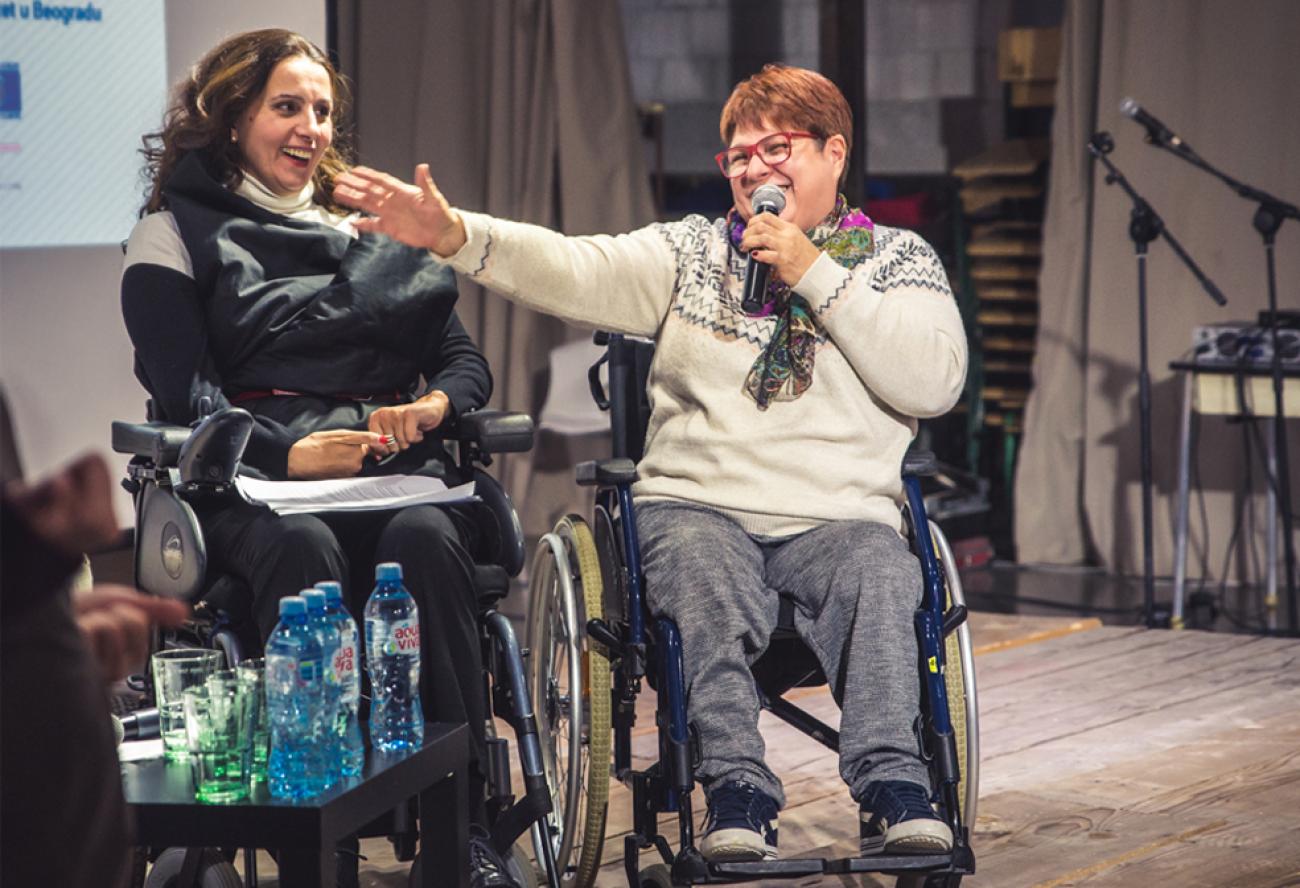Belgrade – Persons with disabilities are the bearers of universal rights, which emphasizes the necessity of their equal and efficient participation in all processes of relevance to them, as well as in a general social context. Nevertheless, they often encounter a range of barriers in many areas of life. That is why today, December 03, “Community Talk: Marking of the International Day of Persons with Disabilities was held to celebrate the International Day of Persons with Disabilities, as well as to launch the Human Rights Week. All the panel discussion participants are persons with disabilities or seasoned female experts. The program hosts were Stefan Lazarević, a young blogger and activist for the rights of persons with autism, and Vidan Danković from the Accessibility Audit Association.
Since barriers are most often a consequence of attitudes and ignorance of individuals, rather than of a disability, it is vital to work on raising public awareness and expanding the knowledge of professionals providing services in all areas of life, the event included the presentation of preliminary results of a survey showing that only a half of the female respondents think that the same services as to women without disabilities are available to them, while 57 percent of them say that the healthcare staff lacks expertise to recognise specific needs of females with disabilities. The panellists who discussed the issue were sociologist Gradimir Zajić, Svjetlana Timotić from the Vojvodina Circle, an organisation which contributed to qualitative collection of data and information qualitatively, as well as Tanja Stojšić, Milesa Milinković and Marija Vrebalov, who pointed to three key topics: 1. Information, 2. Conditions for sexual and reproductive health and 3. Opinions (attitude) about sexuality, marriage and family.
The survey was conducted within the project of improving the position of persons with disabilities titled “Autonomy, Voice and Participation of Persons with Disabilities in Serbia”, implemented by the UN agencies with their partners. The UN Population Fund Office conducts a survey on experiences of women with disabilities in exercising sexual and reproductive rights. The survey objective is to document a rate of information and attitudes of women and girls with disabilities about sexual and reproductive health and rights, as well as practical experiences in exercising those rights, followed by the improvement of those areas.
Human Rights Week:
In addition to this event, in the course of the entire week there will be discussions about the most relevant issues and groups in the area of human rights protection. Supported by the UN Country Team in Serbia, OSCE Mission to Serbia, Delegation of the European Union to Serbia and Council of Europe Office in Belgrade, the civil community, namely bearers of those rights, will present their work, accomplishments and examples of good practice in regard to human rights protection.
By marking the Human Rights Week from December 03 until December 10, Serbia will be on the global map of countries which celebrate the 70th anniversary of the Universal Declaration on Human Rights this year.
The Universal Declaration on Human Rights is an important document in the history of human rights. It was drafted by various legal and cultural representatives from all the regions of the world. The UN General Assembly proclaimed the Declaration as a shared standard of achievement for all peoples and nations, in Paris, on December 10, 1948. The Universal Declaration – the most relevant document in the world - is available in more than 500 languages and it is as significant today as it was when it was adopted.



